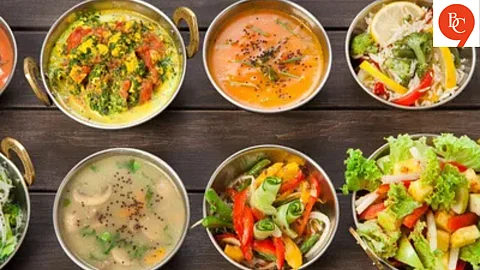

As the weather patterns shift more faster than ever, our bodies and particularly our food patterns are doing their best to keep up.
From blazing summer afternoons to unexpected monsoon pours within a week, the changing weather doesn’t just affect our wardrobes or moods, but also does deeply affect our digestion, immunity, and overall well-being.
Adjusting our diets to seasonal changes isn’t just traditional knowledge, but also a smart lifestyle moves, particularly for people living in cities like Pune where all the seasons are extreme.
Here’s how you can tweak your meals and eating habits to stay energized and healthy throughout the strange climate shifts.
1. Focus on Gut-Friendly Foods
Your gut is often the first to react to weather-induced changes. Unstable temperatures can lead to issues like bloating, indigestion, or even stomach infections.
Eat more of:
Fermented foods like curd, buttermilk, and homemade pickles.
Prebiotic foods like bananas, oats, and garlic.
Hydrating fruits like papaya and watermelon (but avoid during high humidity).
Pro Tip: Start your day with a spoonful of soaked fenugreek seeds or warm lemon water for gut balance.
2. Stay Hydrated—but Wisely
In humid or rainy conditions, people often underestimate their fluid loss. However, simply drinking gallons of plain water isn't the answer.
Better options:
Infused water with mint, cucumber, or tulsi.
Coconut water (nature’s electrolyte).
Soups and herbal teas (especially during monsoons when raw foods may carry bacteria).
Avoid: Excess caffeine, aerated drinks, and packaged juices—these can dehydrate or bloat you.
3. Season with Nature in Mind
Spices aren’t just for flavour—they’re immunity boosters and digestive helpers, especially when weather throws your metabolism off track.
Use more turmeric, pepper, ajwain, and ginger during damp or rainy days.
Add cooling spices like fennel, cumin, and cardamom during hot spells.
Ayurvedic wisdom suggests adjusting spice usage seasonally to “pacify” the body's doshas (Vata, Pitta, Kapha).
4. Eat Light, Cook Fresh
Heavy or leftover food can strain digestion, especially during fluctuating temperatures.
Stick to light home-cooked meals like khichdi, soups, or sabudana preparations.
Reduce raw salads in monsoon and opt for lightly sautéed veggies instead.
Keep non-veg meals to a minimum during high humidity; they can take longer to digest.
5. Build Immunity with Seasonal Superfoods
The weather isn't just confusing to us—our immune systems also get confused. Supporting your body with the right seasonal foods can help prevent frequent colds, skin breakouts, or fatigue.
Include:
Jamun, Amla, and seasonal berries in pre-monsoon months.
Neem and Giloy juice (in moderation) to cleanse the system.
Sprouted pulses, soaked nuts, and seeds for zinc and magnesium.
6. What to Avoid During Weather Transitions
Street food during monsoon: higher risk of contamination.
Chilled drinks and ice cream: may cause throat issues.
Overeating or skipping meals: both disrupt metabolism.
More than just following a trend, working on your diet for you body is very essential. Nature sends signals and your body listens first. The more you align your plate with the planet’s mood swings, the stronger and more balanced you’ll feel.
